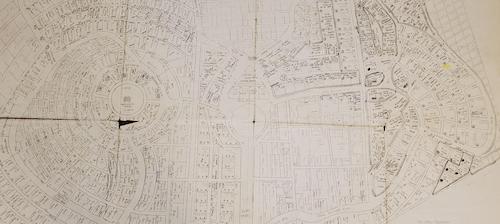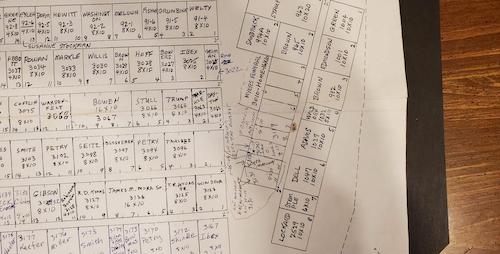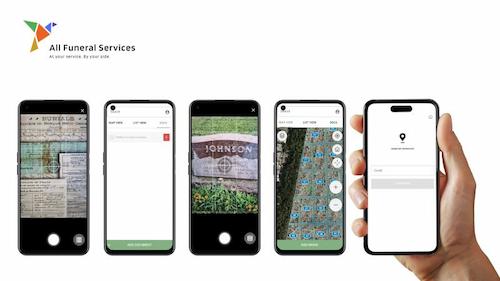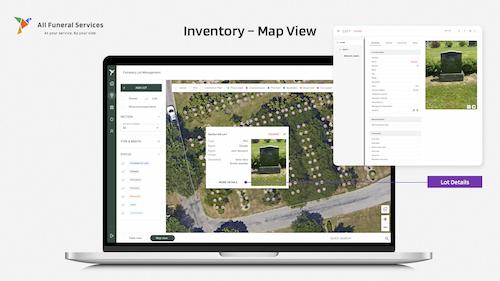Why does every cemetery need digital records before it's too late?

Cemetery records hold decades (sometimes, even centuries) of history. But paper records don’t last forever. Fires, floods, and simple human errors have caused cemeteries to lose vital information, leaving families and cemetery managers struggling to piece things back together.
If your cemetery still relies on paper files or outdated spreadsheets, it’s time to rethink how you protect your records. Digitizing cemetery data nowadays is a necessity.
What happens when cemetery records are lost?
Losing cemetery records is extremely frustrating. Moreover, it can create serious problems for families, cemetery managers, and historic preservation efforts.
Some cemeteries have experienced disasters like fires or floods that wiped out decades of burial records. Others have lost track of information over time due to misplaced files, human error, or poor documentation. In many cases, cemeteries don’t even realize they’re missing information until a family asks about a loved one’s burial location, and the records simply don’t exist anymore.
When records are incomplete or missing, it can lead to disputes over burial rights, lost historical data, and even cases where burial plots are mistakenly sold twice. Some cemeteries have spent years trying to reconstruct lost records, often relying on local historians, family recollections, or old newspaper obituaries. But once information is gone, it’s nearly impossible to fully restore.
Why digital records are the solution
A cemetery management system helps prevent these problems by keeping all records in one secure, searchable place. Instead of digging through old files, cemetery staff can instantly pull up burial information, ownership details, and plot availability.

Unlike paper records, digital files don’t fade, get lost, or get damaged in a flood. Cloud backups ensure that records stay safe, even if something happens to physical copies. Instead of manually updating spreadsheets or handwritten ledgers, cemetery managers can make real-time updates, preventing double-selling of plots or misplaced information.
Digital cemetery mapping also makes a huge difference. With an interactive cemetery map, visitors can search for a loved one’s grave and get exact GPS coordinates. This is a game-changer for families traveling long distances or for cemeteries that no longer have detailed paper maps. If you’re curious about how mapping works, this article explains it in detail.

Why are digital cemeteries the future?
Switching to digital records makes cemeteries more accessible and functional for the future.
For cemetery staff, managing plot sales becomes easier with a digital system. Instead of flipping through paper maps to find available spaces, they can pull up an interactive map that clearly shows which plots are open. Some cemeteries even allow families to browse available spaces online before making a decision.

For genealogists and historians, digital records make research faster and more accurate. Instead of contacting cemetery offices and waiting for responses, researchers can instantly search burial records and even see how family members are buried near each other.
Cemeteries that embrace digital tools can also offer self-guided tours, making local history more engaging. This kind of cemetery tourism is already bringing more visitors to historic sites. If you’re wondering how it could work for your cemetery, this article explores the benefits.
Don't wait until it's too late
Many cemeteries don’t think about digitizing records until they face a problem. But by then, it’s often too late to recover lost information. Moving to a digital system now means protecting your cemetery’s history, improving day-to-day management, and making sure families can always find their loved ones.
If you’re still managing records on paper, now is the time to switch. The longer you wait, the greater the risk of losing valuable cemetery data. Looking for the right software? Check out the top features to look for in cemetery management software.
Solution for managing your cemetery
If you're looking for a reliable and comprehensive solution to manage your cemetery’s operations, consider AFS. Our cemetery management software is designed to handle everything—from inventory management and mapping to sales, interment arrangements, and aftercare services—all within one seamless platform. With tools like a public records search portal, mobile apps for field staff, and a customizable dashboard, AFS provides the innovation and support cemeteries need to stay ahead in the digital age.
Our team understands the unique challenges faced by cemeteries today. We offer personalized service, ongoing support, and regular updates to ensure you have everything you need to maintain your cemetery’s legacy for generations to come. Let us help you streamline your operations while giving families peace of mind that their loved ones’ records are safe, secure, and accessible.
Get a Free Cemetery Workstation Demo
Reach out to us today for a free Cemetery Software demo or more information on how AFS can transform your cemetery management.